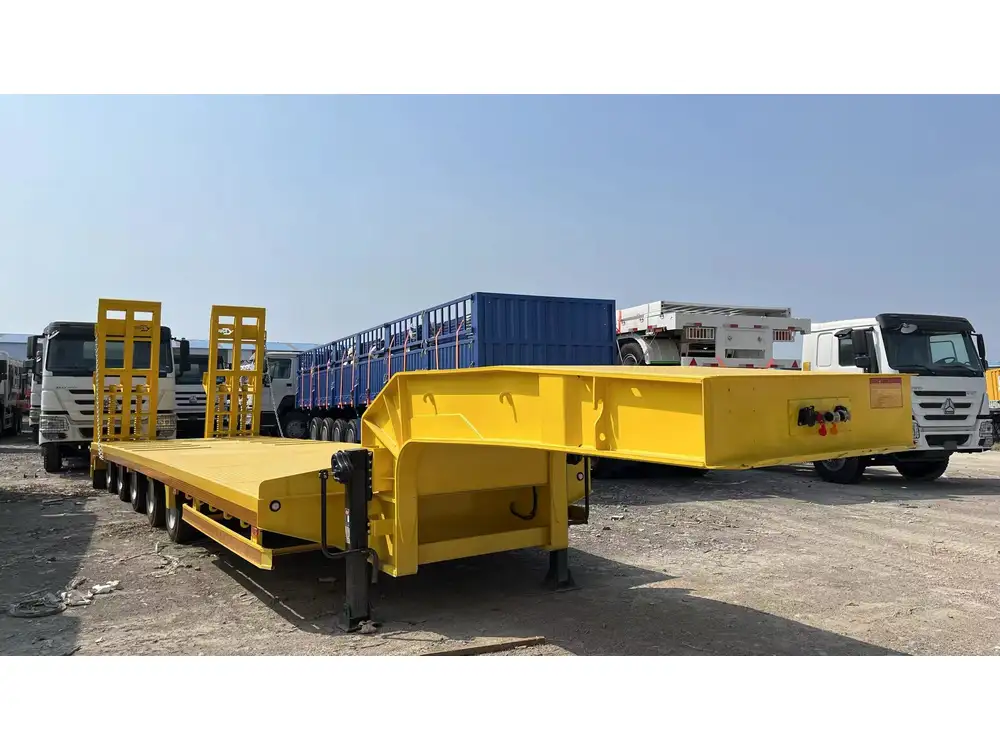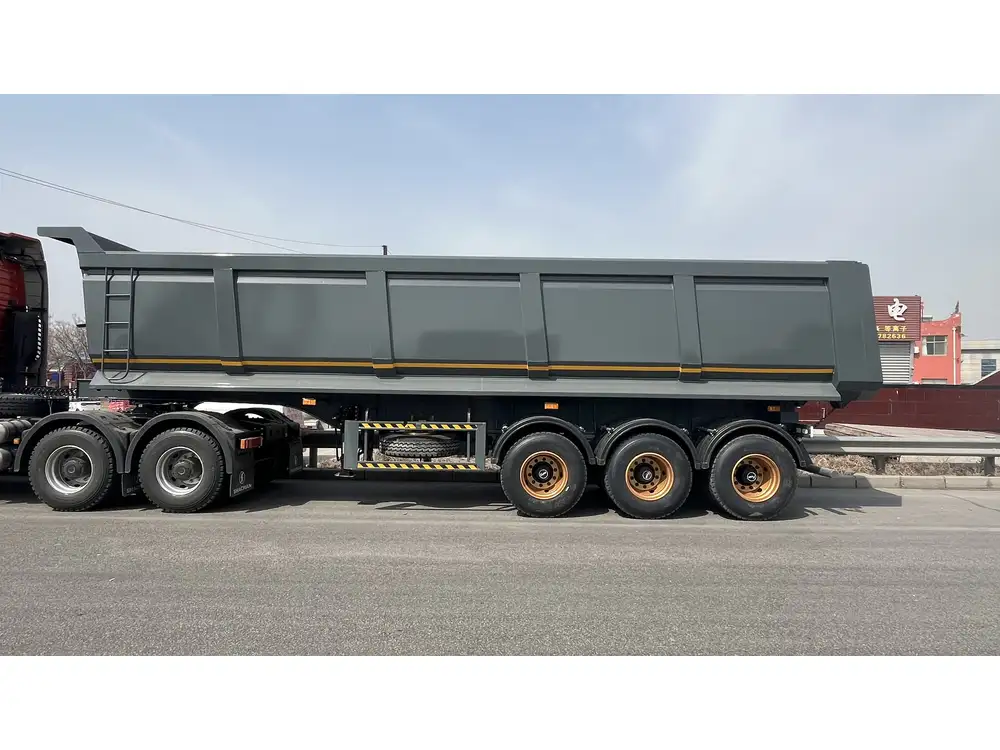When embarking on a project requiring the use of a dump trailer, one burning question often arises: How much does it cost to dump a dump trailer? This inquiry encapsulates both the immediate financial implications of dumping as well as the operational factors that can influence these costs. In this comprehensive guide, we aim to dissect the various components associated with dumping a dump trailer, taking into account factors such as location, materials, and trailer specifics.
Understanding the Dynamics of Dump Trailer Costs
The cost to dump a dump trailer can fluctuate widely based on several determinants. The following table seeks to summarize the primary factors impacting dumping costs:
| Factor | Description | Cost Range |
|---|---|---|
| Material Type | The type of materials being dumped (e.g., dirt, construction debris, asphalt). | $30 – $200 |
| Location | The geographical area and local landfill or transfer station tariffs. | $20 – $100 |
| Weight of Load | Heavily weighted loads often incur higher fees based on local tipping rates. | $0.05 – $0.10 per lb |
| Trailer Size | Size and capacity of the dump trailer (e.g., 5, 10, 14, and 20 cubic yards). | $20 – $80 |
| Permits and Fees | Necessary permits or access fees applicable in certain localities or for specific projects. | $10 – $150 |
| Service Providers | Fees charged by rental services for drop-off and pick-up services. | $50 – $150 |
Breaking Down Costs by Material Type
Different materials carry varying costs when dumping due to their disposal requirements. Understanding these nuances can empower you to make informed decisions:

1. Construction Debris
Dumping construction debris is often a significant part of any construction project. In general, these materials consist of concrete, wood, metals, and other construction remnants.
- Typical Costs: Ranges from $60 to $120 per ton depending on the specific materials and local dumping fees.
- Permits: May be required if more than a certain volume is being disposed of, especially in urban areas.
2. Dirt and Soil
Removing soil from a landscaping or excavation project often proves less costly than construction debris. The price is mostly influenced by cleanliness; clean fill dirt typically incurs lower fees than contaminated soil.
- Typical Costs: Approximately $30 to $60 per load (up to around 10 cubic yards).
- Best Practices: Ensure that soil is free from contaminants to minimize fees.
3. Mixed Waste
Dumping mixed waste that includes various items can complicate the pricing structure. It is typically more expensive because the waste may require sorting and additional handling.
- Typical Costs: From $50 to $150 per ton, depending on local regulations and the disposal complexity.
- Tip: Separate recyclable materials to reduce costs.

Location Matters: Understanding Local Fees
Geographical variations play a pivotal role in determining dump costs. Urban areas tend to impose higher dumping fees compared to rural locations due to elevated disposal operation costs. Below are typical local charges per location category:
| Location Type | Average Dump Cost (per ton) | Notes |
|---|---|---|
| Urban Centers | $120 – $200 | Higher due to operational expenses |
| Suburban Areas | $70 – $120 | Moderate fees with better logistics |
| Rural Areas | $30 – $70 | Generally lower due to lower demand |
Insights:
- Always consult local waste management services to determine specific rates and any applicable discounts for bulk dumping.
Weight Metrics and Their Impact on Dumping
The weight of the load significantly contributes to the overall dumping cost. Landfills typically charge by weight, with fees ranging from $0.05 to $0.10 per pound. Thus, the total weight of the dump trailer will directly influence your costs.
Key Considerations:
- Load Limits: Ensure your dump trailer adheres to the weight limits set forth by your local regulations. Overloading can lead to fines and additional fees.
- Weighing Your Load: Utilize public scales located near major truck stops or landfill entrances to verify weight before dumping.

Dimensions and Capacities: Choosing the Right Trailer
The size of the dump trailer matters immensely. Dump trailers are available in a variety of sizes; from small 5-cubic-yard models to larger 20-cubic-yard trailers. Your choice can influence the economics of dumping operations:
| Trailer Size | Capacity (Cubic Yards) | Typical Cost to Dump |
|---|---|---|
| 5-yard | Suitable for small projects | $30 – $50 |
| 10-yard | Ideal for medium loads | $50 – $80 |
| 14-yard | Good for construction debris | $70 – $120 |
| 20-yard | Large projects or renovation | $100 – $200 |
Important Notes:
- A larger trailer may offer better economy for larger loads but could incur greater initial costs.
- Conversely, smaller trailers are often easier to maneuver but can increase the frequency of trips required for larger projects.
Navigating Permits and Additional Fees
In certain municipalities, dumping operations require specific permits, especially for large quantities or hazardous materials. The necessary permits can incur additional costs ranging from $10 to $150.
Considerations Regarding Permits:
- Always check municipal regulations before initiating your dumping project.
- Permit fees may vary widely; make sure to factor these into your budget.

Evaluating Service Providers
When hiring a dump trailer service, you may encounter various pricing models:
- Flat Rate Services: Some companies offer a flat fee which can cover pickup, drop-off, and dumping. Expect costs to range from $50 to $150 depending on distance and volume.
- Pay Per Service: Some operators charge separately for each part of the service, which can lead to unforeseen expenses.
Tip: Always ask service providers for transparent pricing details and any additional charges that might apply.
Frequently Asked Questions
1. How Do I Estimate the Cost of Dumping?
To estimate the cost of dumping, factor in the material type, weight, local disposal fees, and whether you need any permits.

2. Are There Ways to Minimize Dumping Costs?
Yes, consider separating materials, ensuring your trailer isn’t overloaded, and using local resources for weight verification. Many landfills offer reduced fees for residents or recycling services.
3. What Are the Risks of Overloading My Dump Trailer?
Overloading can result in fines, an inability to dump your load, and potential damage to your trailer or vehicle. It is always wise to adhere to local regulations regarding weight limits.
4. What Should I Do if I Am Dumping Hazardous Waste?
If you suspect you’re dealing with hazardous waste, consult local waste management resources to understand proper disposal procedures and any associated fees.

5. Can I Dump at Any Landfill?
Dumping locations can be specific to the type of waste being disposed of. Confirm with your local regulations which landfills accept various waste types.
Conclusion
In summary, determining how much it costs to dump a dump trailer involves a multi-faceted analysis of factors such as material types, location, weight loads, trailer size, and service provider choices. By understanding the complexities of these elements, you can strategically manage costs, ensuring every dollar spent on dumping yields maximum operational efficiency. When planning your next project, using this guide as a framework will bolster your decision-making process, ultimately leading to a more profitable and effective dumping operation. Remember, knowledge is your most valuable asset in navigating the logistics of dump trailer management.



